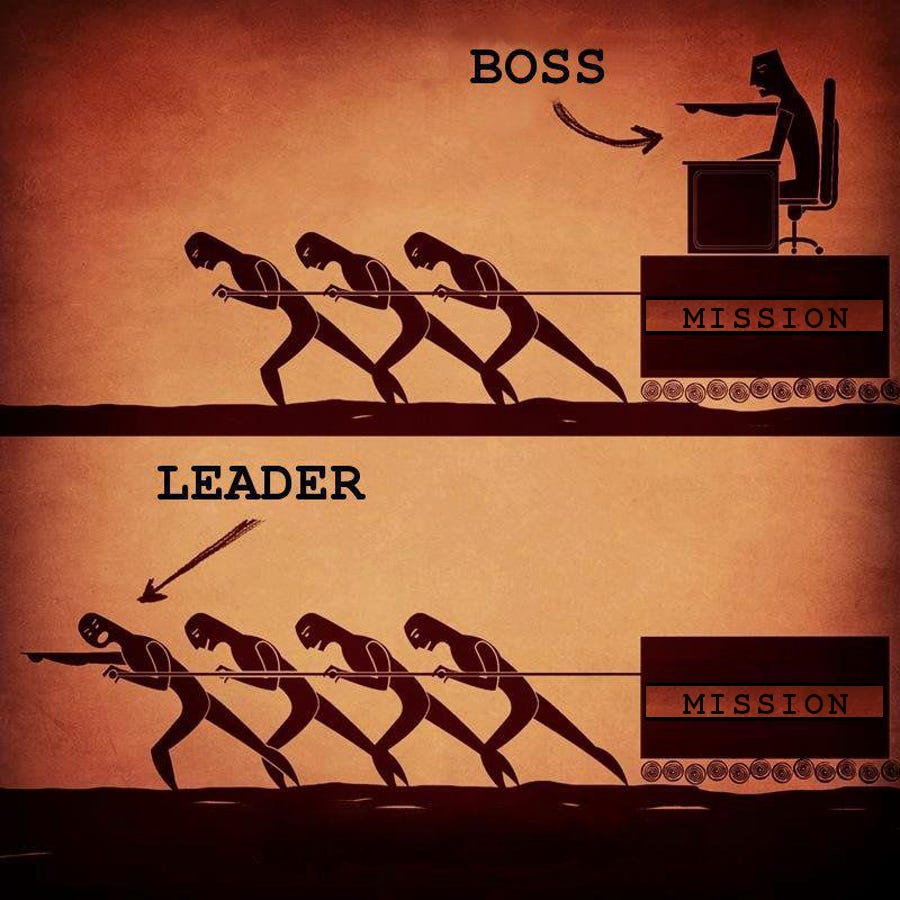The Best Way to Earn Respect as a Business Owner is Easier Than You Think
You need to show your team that it’s about more than just money – make sure your staff knows that you care about the business and that you care about them
One of the easiest ways to run a successful business is to have the respect of the people around you. Conversely, one of the easiest ways to run your business into the ground is to have zero respect from those closest to you.
By that, of course, I mean your staff – everyone from management down to entry-level employees. Respect is like trust: it can take a lifetime to earn it, and just seconds to demolish it. And by the time you’ve been a business leader for some years, you learn quite quickly how long it can take to garner that respect.
In my experience, it was a very bumpy road in the years preceding when I took over. As the third generation in our family business, I was put in an awkward position, just as my father once was: I was suddenly put in charge of people that I had grown up with, many of them twice my age. They were working at their desks while I was a toddler running around the place.1 Now, I’m suddenly dictating what people are supposed to be doing in the jobs they have done forever.
I already had some experience with this from years earlier, when I first entered the business full-time, a point in which the only experience I had was listening to dinnertime conversations at home, as well as a few summers working in the building – hardly management material. Yet, at that time, I just assumed there would be a level of respect for a “member of the family.”
Turns out, I was quite wrong. I made the mistake of expecting respect, rather than figuring out how to earn that respect. The good news is, the building was already populated with people who truly cared about my family and the business, and over time we all found an excellent balance. Part of that meant I had to bide my time before suggesting or implementing major changes to the company. No one likes a young, rash kid who walks into a successful business and says, “we’re gonna do things differently!”
Now, nearly 15 years later, I’ve learned quite a lot about the best ways to garner respect. And the answer is quite simple:
You need to show your staff that you care – that it’s about more than just money.
It doesn’t take a genius to make numbers add up, put in some crazy sales policies, cut costs, and rake in the profit in the short-term. However, it is extremely difficult to run a successful, profitable business, while also showing how much you care about the company and the people that run it on your behalf. As NFL coach Marvin Lewis once said, “They don’t care what you know until they know that you care.”

How do you show them that you care? Here are a few ways that I find are extremely beneficial, and something that should come easy to any good business leader:
Know and share your motive
Make sure your staff knows why you do what you do. If you don’t have motivation, they certainly won’t. This also comes into play with basic business decisions. It’s common knowledge that the phrase “because I said so” can destroy years of great parenting. It’s the same thing in management. If you firmly believe in a decision you’ve made, explain it to your staff, especially if they’re skeptical. If you show your motivation, they will respect it, even if they disagree. As famed financial consultant Peter Drucker once said, “[Effective leaders] have authority only because they have the trust of the organization.”
Be honest
Honesty is by far the easiest item on this list. I remember one of my middle school teachers saying that if you’re going to lie, you better have a good memory.2 To me, there is no reason not to be honest, so long as the topic isn’t proprietary. That means, if someone wants to know specific financial figures from the business, I’ll politely decline. But I will certainly open up about why we do things a certain way, the risks we do or don’t take, and what we hope to achieve with certain decisions. Again, even if people disagree with an action you’ve taken, they will respect you if they believe they can trust you.
Put the company ahead of yourself
A mantra that I preach (and practice) regularly is, “It’s all about the company.” Meaning, everything we do is for the betterment of the company. Sometimes, that means saving money. Sometimes, that means spending money. Sometimes, that means making a decision that may not be good for you personally. Sometimes, that means changing an internal policy that irks people. A business is not a personal piggy bank – you need to show with your actions that the decisions you make are to help make the company, and therefore all of your employees, more successful. If it’s good for the company, then it’s good for you – even if it isn’t.
Lead by example
Especially when business is rough, you need to set the tone. A phrase I learned from writing about Ed Snider is “a fish stinks from the head.” You need to be the optimist so that the trait trickles down through the organization. And it’s not just about saying positive things. It’s about doing things that people view as a positive attempt to better the company. “Hope is more than the sunny view that everything will turn out all right,” said psychologist and author Daniel Goleman. “It is believing you have the will and the way to accomplish your goals.”
Give respect to get respect
If someone chooses to work for your company, that’s a big deal. They are telling you that they’re willing to put their livelihood in your hands. That’s a huge responsibility, and one that I never forget each day when I walk into our building. Furthermore, if someone chooses to continue working for your company year after year, it’s an immense sign of respect. Contrary to old-timey thinking, “a paycheck” is not a thank you for working. It’s the reason they work. I’ve written before about money not being the main motivator behind people’s day-to-day work. You need to give people additional, non-monetary respect to show that you care about them, especially if you want them to reciprocate.
Always be open to learning
I’ve written before about the best trait a leader can have. Part of having curiosity is showing a willingness to learn – or more importantly, admitting that you don’t always know the answer. Many people in your business will be smarter than you, both at specific tasks and in general. By putting your faith in them, asking questions, and bettering yourself, you show an immense amount of respect for them and their work. Contrary to popular belief, admitting you don’t know something isn’t a detriment to your persona. Rather, it’s both normal and humanizing.
Though I was probably less annoying then than I am now.
More than likely a paraphrase of Mark Twain’s famous “If you tell the truth, you don't have to remember anything.”


